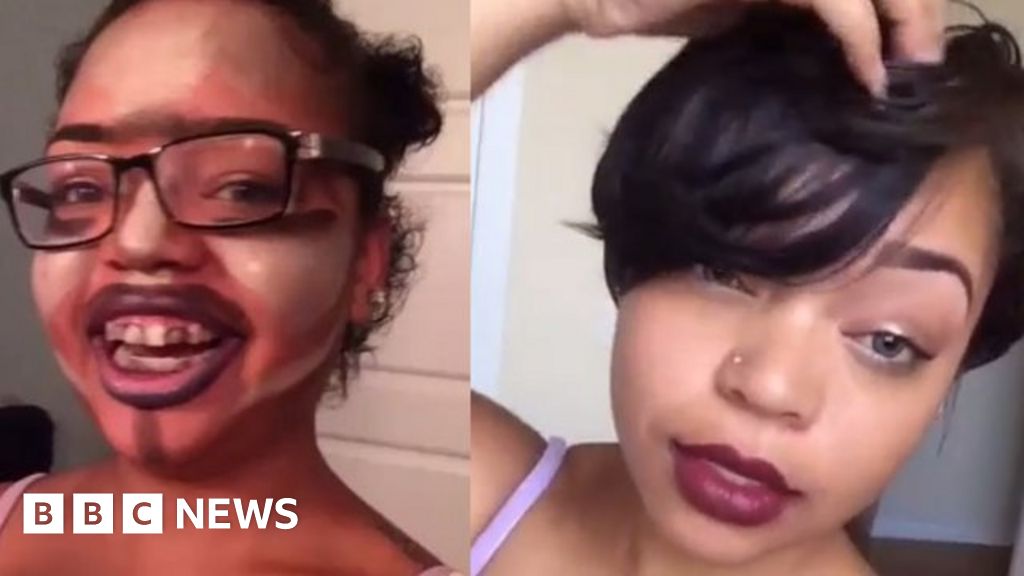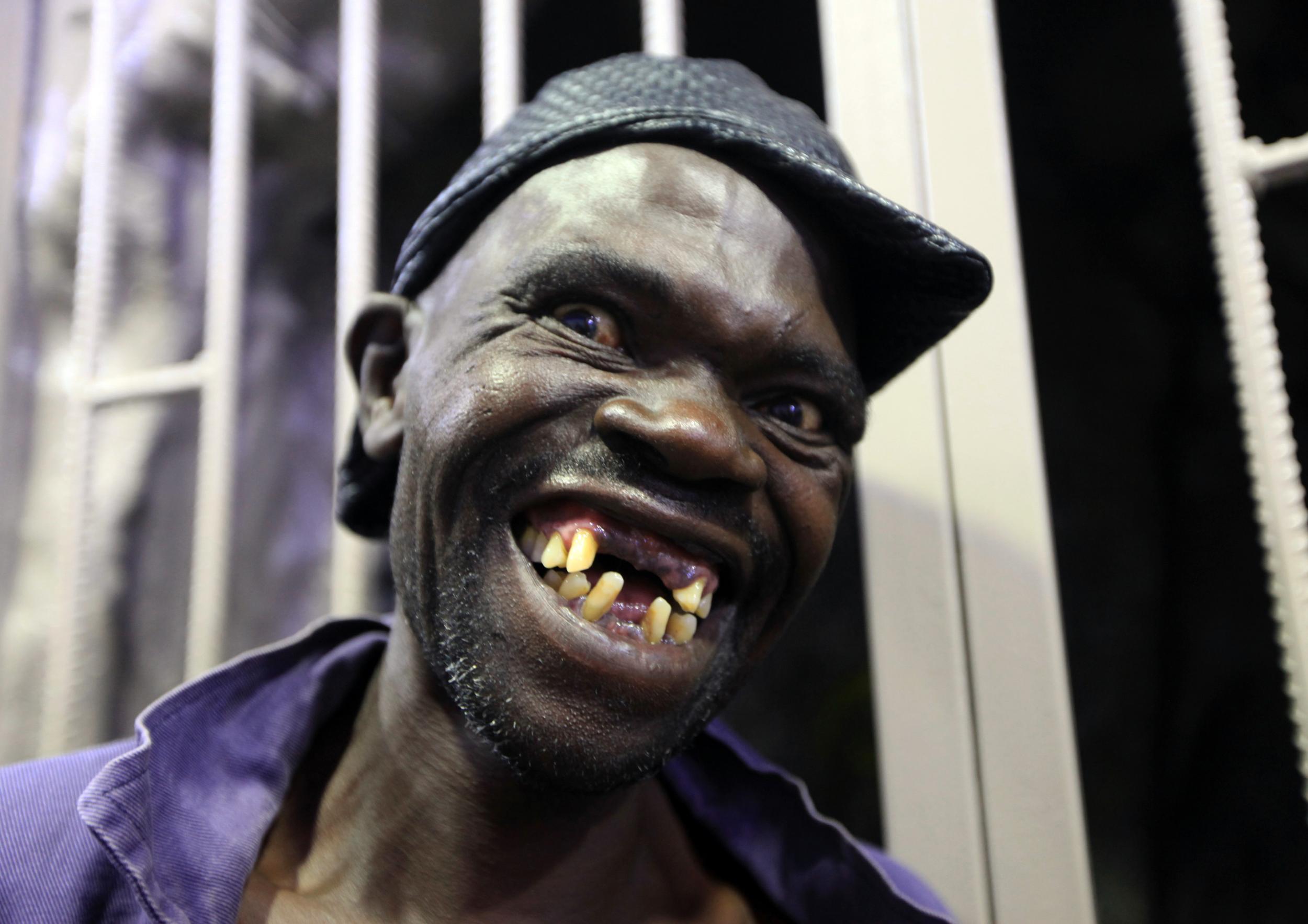Let's talk about something real—ugly people. We live in a world obsessed with beauty, where looks often define success, acceptance, and even happiness. But what about those who don't fit into society's narrow beauty standards? Is being labeled "ugly" really that bad? Spoiler alert: It's not. Stick around, and we'll dive deep into this topic, breaking down stereotypes and uncovering truths you won't find in mainstream media.
You’ve probably scrolled through Instagram, TikTok, or any other social media platform and seen perfectly filtered faces, edited bodies, and unrealistic standards of beauty. It’s easy to feel like you don’t measure up when everyone around you seems to have it all together. But here's the thing: not everyone fits into that mold—and that’s okay. In fact, it’s more than okay—it’s powerful.
This article isn’t just about ugly people; it’s about redefining beauty, embracing imperfections, and celebrating individuality. So, if you’ve ever felt like you don’t belong because of how you look, this is for you. Let’s break some chains and rewrite the narrative together.
Read also:Stella Banderas The Iconic Journey Of A Remarkable Woman
Table of Contents
- Biography: Understanding Who We Call "Ugly People"
- Defining Ugly: What Does It Really Mean?
- Societal Standards: How Beauty Norms Impact Us
- Ugly Stereotypes: Breaking Down Misconceptions
- Ugly People in History: Icons Who Defied Beauty Standards
- Ugly People in Media: Representation Matters
- Challenges Faced by Ugly People
- Triumphs of Ugly People: Success Beyond Looks
- Self-Love for Ugly People: Embracing Your Unique Beauty
- The Future of Ugly: Redefining Beauty Standards
Biography: Understanding Who We Call "Ugly People"
Before we dive deeper into the topic, let’s first understand who we’re talking about when we say "ugly people." Spoiler alert: there’s no such thing as an objectively ugly person. Beauty—and ugliness—are subjective concepts shaped by cultural, societal, and personal biases. But for the sake of this discussion, let’s explore what society often labels as "ugly" and why.
Who Are Ugly People?
Ugly people are individuals who don’t conform to traditional beauty standards. These standards vary across cultures and time periods, but they often include things like symmetrical features, clear skin, a certain body type, and specific hairstyles. People who don’t meet these criteria might be labeled as "ugly" by others, even though their uniqueness is what makes them special.
| Characteristics | Examples |
|---|---|
| Asymmetrical Features | Uneven eyes, crooked smiles |
| Unconventional Skin Tone | Freckles, scars, blemishes |
| Non-Traditional Body Types | Curvy, tall, short, muscular |
| Unique Hairstyles | Dreadlocks, shaved heads, colorful hair |
Defining Ugly: What Does It Really Mean?
Let’s get one thing straight: ugly is a label, not a fact. The word "ugly" is often used to describe something unattractive, unpleasant, or undesirable. But here's the kicker—ugly isn’t just about physical appearance. It can also refer to behavior, actions, or even ideas. So, when we talk about ugly people, we’re really talking about societal perceptions and biases.
For example, someone with acne might be labeled as "ugly" by people who equate clear skin with beauty. But that same person could be kind, intelligent, and talented—qualities that far outweigh physical appearance. See where I’m going with this?
Is Ugly Real?
Nope. Ugly is a construct—a made-up idea created by society to control and manipulate. It’s a way of keeping people in line, making them conform to impossible standards. But here’s the good news: you don’t have to buy into it. You can choose to see yourself—and others—for who they truly are, not what society says they should be.
Societal Standards: How Beauty Norms Impact Us
Now, let’s talk about the elephant in the room: societal beauty standards. These norms shape how we see ourselves and others, often leading to feelings of inadequacy and low self-esteem. But where do these standards come from, and why do they matter so much?
Read also:Jessa Rhodes The Rising Star Who Stole Our Hearts
- Cultural Influence: Different cultures have different beauty standards. For example, in some parts of Asia, fair skin is considered beautiful, while in other regions, tanned skin is preferred.
- Media Representation: Movies, TV shows, and social media platforms often showcase a narrow range of beauty ideals, making it hard for people who don’t fit those standards to feel accepted.
- Psychological Impact: Constant exposure to unrealistic beauty standards can lead to body dysmorphia, eating disorders, and other mental health issues.
Breaking Free from Beauty Norms
The key to breaking free from societal beauty standards is self-awareness. Once you recognize that these standards are arbitrary, you can start to question them—and eventually reject them. Here are a few tips to help you on your journey:
- Follow diverse influencers who celebrate individuality.
- Limit your exposure to toxic media that promotes unrealistic beauty ideals.
- Practice self-love and affirmations daily.
Ugly Stereotypes: Breaking Down Misconceptions
Stereotypes about ugly people abound, and they’re often harmful and inaccurate. From being portrayed as villains in movies to being overlooked in real life, ugly people face a host of challenges based on these false assumptions. But it’s time to bust these myths and set the record straight.
Common Ugly Stereotypes
- Ugly People Are Unkind: This couldn’t be further from the truth. Some of the kindest, most compassionate people you’ll ever meet don’t fit traditional beauty standards.
- Ugly People Are Unsuccessful: Success isn’t defined by looks. Many successful individuals have achieved great things despite—or even because of—their so-called "ugliness."
- Ugly People Are Unlovable: Love isn’t based on appearance. True love sees beyond surface-level traits and values someone for who they are inside.
Ugly People in History: Icons Who Defied Beauty Standards
History is full of examples of people who defied beauty standards and achieved greatness. These individuals didn’t let society’s labels define them; instead, they embraced their uniqueness and used it to their advantage. Here are a few icons who prove that ugly is just a state of mind:
1. Frida Kahlo
Frida Kahlo was a Mexican artist known for her vibrant paintings and bold personality. Despite suffering from physical disabilities and being labeled as "ugly" by some, she became one of the most celebrated artists of all time.
2. Charles Dickens
Charles Dickens, the famous English writer, was often described as having an unconventional appearance. But his talent for storytelling and his commitment to social justice made him a literary legend.
3. Queen Elizabeth I
Queen Elizabeth I was no stranger to criticism about her looks. But she ruled England with strength and determination, proving that leadership isn’t defined by appearance.
Ugly People in Media: Representation Matters
Representation in media is crucial for breaking down stereotypes and promoting inclusivity. When ugly people are portrayed positively and authentically, it sends a powerful message to audiences around the world. But unfortunately, this type of representation is still rare.
Positive Portrayals of Ugly People
- Shrek: The lovable green ogre teaches kids that beauty comes from within.
- Matilda: The quirky, intelligent protagonist shows that brains are more important than beauty.
- The Breakfast Club: This classic film highlights the diversity of high school students, including those who don’t fit traditional beauty standards.
Challenges Faced by Ugly People
Let’s not sugarcoat it—being labeled as "ugly" can be tough. From facing discrimination in the workplace to dealing with online trolls, ugly people encounter a host of challenges that others might not even consider. But it’s important to recognize these struggles and work towards creating a more inclusive world.
Overcoming Challenges
Here are a few ways ugly people can overcome the challenges they face:
- Build a supportive community of like-minded individuals.
- Speak out against discrimination and bias whenever possible.
- Focus on your strengths and talents, rather than your appearance.
Triumphs of Ugly People: Success Beyond Looks
Despite the challenges they face, ugly people have achieved incredible things throughout history. Their triumphs serve as a reminder that success isn’t defined by appearance, but by hard work, determination, and resilience.
Stories of Success
Take, for example, the story of Richard Branson, the founder of Virgin Group. Branson has openly talked about being teased as a child for his appearance, but he didn’t let that stop him from building one of the most successful business empires in the world.
Self-Love for Ugly People: Embracing Your Unique Beauty
Self-love is the ultimate weapon against societal beauty standards. When you love yourself for who you are, no one else’s opinion matters. But cultivating self-love isn’t always easy—it takes time, effort, and patience. Here are a few tips to help you on your journey:
- Practice gratitude daily by listing things you love about yourself.
- Surround yourself with positive influences who uplift and inspire you.
- Challenge negative self-talk by replacing it with affirmations.
The Future of Ugly: Redefining Beauty Standards
So, what does the future hold for ugly people? Hopefully, a world where beauty standards are a thing of the past. A world where people are celebrated for their uniqueness, not judged for their appearance. But we can’t get there without collective effort and change.
How You Can Help
Here’s how you can contribute to creating a more inclusive future:
- Speak out against discrimination and bias whenever you see it.
- Support media that promotes diversity and inclusivity.
- Be kind and compassionate to others, regardless of how they look.
Conclusion
In conclusion, ugly people are just like everyone else—unique, talented, and deserving of love and respect. By challenging societal beauty standards, embracing individuality, and promoting inclusivity, we can create a world where everyone feels valued and accepted. So, the next time someone tells you you’re ugly, smile and say, "Thank you for your opinion. Now let me show you how wrong you are."
What are your thoughts on this topic? Share your stories, experiences, and insights in the comments below. And don’t forget to check out our other articles for more inspiring content. Together, we can redefine beauty and create a brighter, more inclusive future for all.


